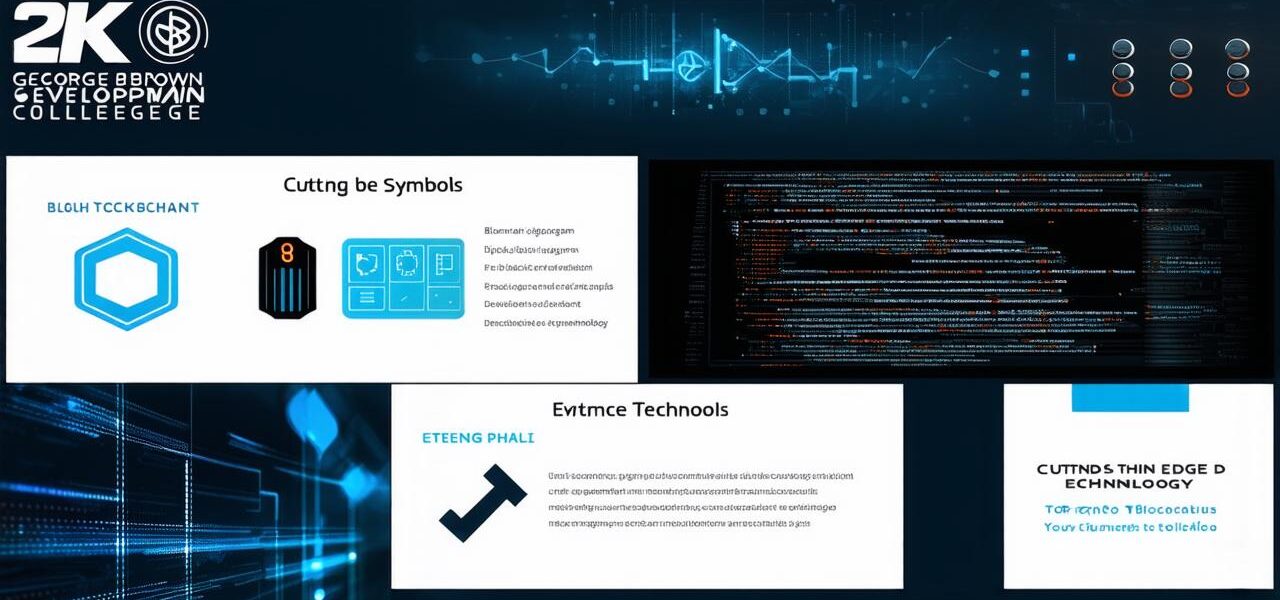
Exploring Blockchain Development at George Brown College: A Cutting-Edge Program for Aspiring Technologists56
Exploring Blockchain Development at George Brown College: A Cutting-Edge Program for Aspiring Technologists
In recent years, blockchain technology has become increasingly popular, with applications ranging from cryptocurrencies to supply chain management and even voting systems. As a result, there is a growing demand for professionals with expertise in this field. That’s where George Brown College comes in.
The college offers a cutting-edge program in blockchain development that provides aspiring technologists with the skills they need to succeed in this exciting and rapidly evolving industry.
What is Blockchain Development?
Before we dive into the specifics of the program at George Brown College, let’s first understand what blockchain development entails. At its core, blockchain technology is a decentralized digital ledger that records transactions in a secure and transparent manner. This means that once data is recorded on a blockchain, it cannot be altered or deleted, providing a tamper-proof record of all activity.
Blockchain development involves building and maintaining these digital ledgers, as well as developing applications that can interact with them. This requires a deep understanding of various programming languages, cryptography, and distributed systems. It also requires an ability to think creatively and problem-solve in order to develop innovative solutions using this technology.
The Blockchain Development Program at George Brown College
Now that we have a basic understanding of what blockchain development entails, let’s take a closer look at the program offered by George Brown College. The program is designed for students with a background in computer science or a related field who are interested in pursuing a career in blockchain development.
It consists of two parts: a certificate program and a bachelor’s degree program.
Certificate Program
The certificate program takes one year to complete and covers the fundamentals of blockchain technology, including cryptography, distributed systems, and smart contracts. Students will also learn how to develop applications using various programming languages such as Solidity (for Ethereum) and Java (for Hyperledger). The program is designed for students who want to quickly gain a foundational understanding of blockchain development and enter the workforce in this field.
Bachelor’s Degree Program
The bachelor’s degree program, on the other hand, takes four years to complete and provides a more comprehensive education in blockchain technology. In addition to the certificate-level courses, students will also take elective courses that cover topics such as decentralized finance, cryptocurrency trading, and supply chain management. The program is designed for students who want to become experts in blockchain development and pursue careers in this field at a more advanced level.
Real-Life Examples of Companies Benefiting from Blockchain Technology
Now that we have a better understanding of the blockchain development program at George Brown College, let’s take a look at some real-life examples of companies that have already benefited from blockchain technology.
Walmart
The retail giant has been using blockchain technology to track the movement of food products through its supply chain. By using a digital ledger that records every step of the supply chain journey, Walmart can quickly and accurately identify where contaminated products are coming from and take action to remove them from shelves. This has helped Walmart increase transparency and improve food safety for its customers.
Provenance
A blockchain-based platform that allows companies to track the origin and movement of goods throughout their supply chain. By using blockchain technology, Provenance can provide a tamper-proof record of every transaction that takes place in the supply chain. This has helped companies such as Nestle and Unilever increase transparency and improve sustainability by allowing consumers to track the environmental impact of the products they buy.
IBM’s Food Trust

Finally, we have IBM’s Food Trust.



